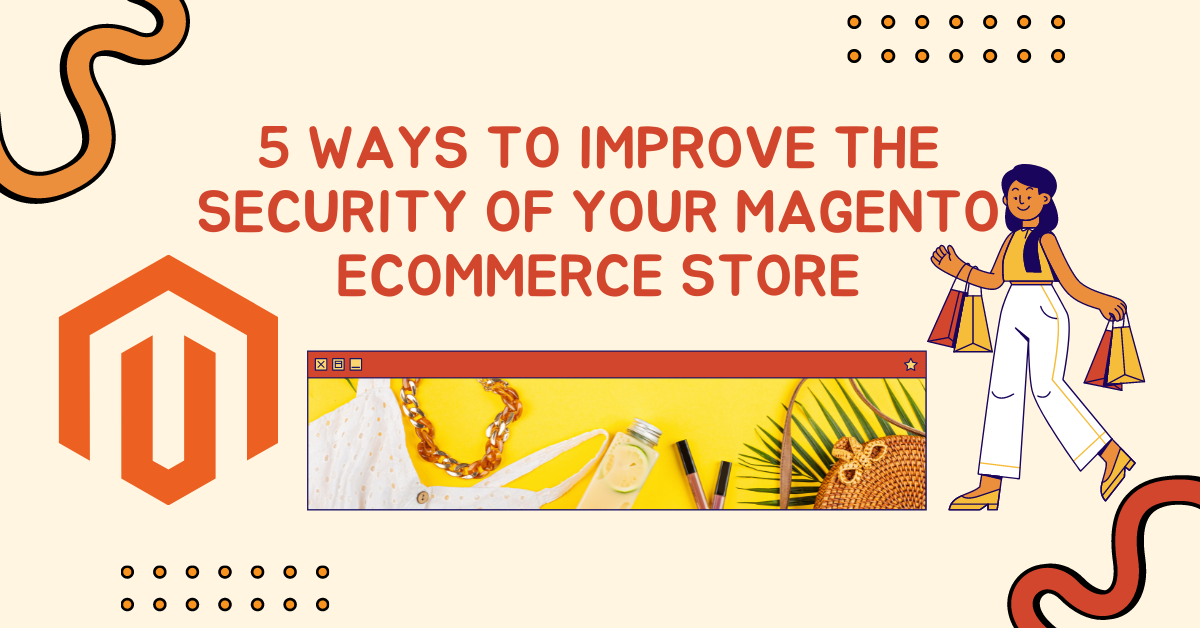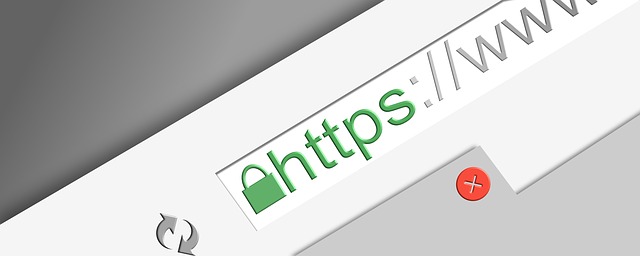This post reveals five ways to improve the security of your Magento eCommerce store.
An alarming report shows that over 90% of small online enterprises are prone to data breaches. Because of this, building security authentication for eCommerce should never be a one-time effort once your site is up and running.
Your site must be safeguarded from the prying eyes of hackers notorious for stealing data at any time. Here are five ways to improve your Magento store security:
Table of Contents
5 Ways To Improve The Security Of Your Magento eCommerce Store
1. Use HTTPS and Run a Site Security Audit
HTTPS has become the industry standard for internet security. Sites with the old HTTP protocol have more significant security risks. Businesses exclusively using HTTPS for payment gateways that handle sensitive data have fewer online safety threats.
In the age of password breach concerns, eCommerce business owners are migrating their entire site to HTTPS. It protects the security of their payment sections and all other pages on their website. It also safeguards your customers’ data.
Site security is not a passive activity. You must monitor your eCommerce business regularly to spot any suspicious activities. Sure, many components of your site’s security, such as scheduled backups and routers, can be automated, but you should be aware of a lot more to security trust. You can use Magento security audit to determine if your site has enough features to detect and block malicious behaviors.
2. Never Save Credit Card Info on Your Backend
Saving credit card information may be against the law, depending on where you are. Even if it’s not, it is still unethical. Never keep credit card information online to protect your E-Commerce shop from any online threats.
Since third-party suppliers process E-Commerce payments, they can represent a significant risk to your company’s and clients’ credit card details.
READ ALSO: How To Make Your Thrift Store A Success
3. Use Safety Plugins and Get Your Customers Involved
Plugins are helpful to E-Commerce stores worldwide that use platforms that support them. For example, Wordfence Security is a plugin that provides E-commerce sites with a robust security system that works with the online application firewall. This plugin protects your website and gives you a real-time view of your traffic and any potential hacking activity.
Even if you take all the measures to keep your customers’s information safe, there are still dangers that their accounts can be stolen.
While you can’t dictate how to create a secure account for your client, you may apply basic security features like CIAM authentication or a strong password for better protection.
4. Secure Your Admin Dashboard
Hackers may access your eCommerce site in various ways, but the simplest is to gain access to your Admin account. Hackers need one easy password to start sneaking through your admin panel, uncovering the information they’re looking for—and even locking you out.
Many website owners leave their admin login credentials as quickly as “admin” for the username and “password” for the passcode. Later on, they are surprised when their admin panel is accessed by someone else.
When eCommerce sites are created, the default login is Admin, and many vendors are so caught up in the rush of getting things up and running that they never change it. Don’t be like them.
This risk extends beyond traditional eCommerce websites to platforms like WhatsApp eCommerce stores, where secure access and credential management are equally vital. Ensuring strong, unique credentials and implementing security best practices for WhatsApp eCommerce accounts protects these increasingly popular sales channels from unauthorized access.
5. Backups Now and Then
It’s infuriating when your eCommerce store website has been hacked, and all your business and client information has been compromised. It’s upsetting to discover that someone has been looking at your website, especially when you discover the damage it caused.
Attackers can do everything from copying your data to destroying and preventing you from reaccessing it. When you have a copy of your database, it’s easier to rebuild your site if any unfortunate event happens.
There you go! 5 things to do for your Magento store security.
Ways To Improve The Security Of Your Magento eCommerce Store: FAQs
Running a successful Magento store requires keeping your customers’ data safe and secure. Here are answers to some frequently asked questions to help you fortify your store’s defenses:
How can I keep my Magento store software up-to-date?
- Updates are crucial: Outdated software can have vulnerabilities that hackers exploit. Magento releases regular updates with security patches. Make installing these updates a top priority.
- Automatic updates (optional): Consider enabling automatic updates for security patches, but thoroughly test them on a staging environment before deploying them to your live store to avoid compatibility issues.
What are some strong password practices for my Magento store?
- Complexity is critical: Use a mix of uppercase and lowercase letters, numbers, and symbols. Avoid using dictionary words, personal information, or easily guessable phrases.
- Unique passwords: Don’t reuse the same password for your Magento store login and other accounts. Consider a password manager to generate and store strong, unique passwords.
- Enforce strong passwords: Configure Magento to enforce password complexity requirements for all user accounts.
Should I be using HTTPS on my Magento store?
- Absolutely! HTTPS encrypts communication between your store and customers’ browsers, protecting sensitive data like credit card information from being intercepted by hackers.
- Customer trust and SEO: Having an SSL certificate for HTTPS also builds customer trust and can boost your store’s SEO.
What additional security measures can I take?
- Two-factor authentication (2FA): Enable 2FA for all admin accounts. This adds an extra layer of security by requiring a code from a phone app or security key and the password to log in.
- Limit admin user access: Only grant admin privileges to users who need them. Regularly review and remove unused accounts.
- Security extensions: Consider installing reputable security extensions offering malware scanning, monitoring login attempts, and firewalls.
How can I stay informed about Magento security threats?
- Subscribe to Magento security advisories: Sign up for Magento’s security advisory notifications to stay updated on the latest vulnerabilities and available patches.
- Security blogs and forums: Follow security blogs and forums related to Magento to learn about emerging threats and best practices.
By implementing these steps, you can significantly improve the security of your Magento store and protect your customers’ data. Security is an ongoing process, so stay vigilant and adapt your approach as needed.
INTERESTED POSTS
- How To Secure Your Magento Website
- Top 5 Cybersecurity Threats That eCommerce Websites Should Watch Out For
- Are Magento Websites Secure?
- Surefire Tips – How To Protect Your Data From Cyber Attacks
- Top 6 Hacks To Secure Your eCommerce Site Against Cyber Threats
- 8 Best Cybersecurity Practices for Website Owners
- How Will The Right CRM System Improve Your Business Today?
About the Author:
Daniel Segun is the Founder and CEO of SecureBlitz Cybersecurity Media, with a background in Computer Science and Digital Marketing. When not writing, he's probably busy designing graphics or developing websites.








